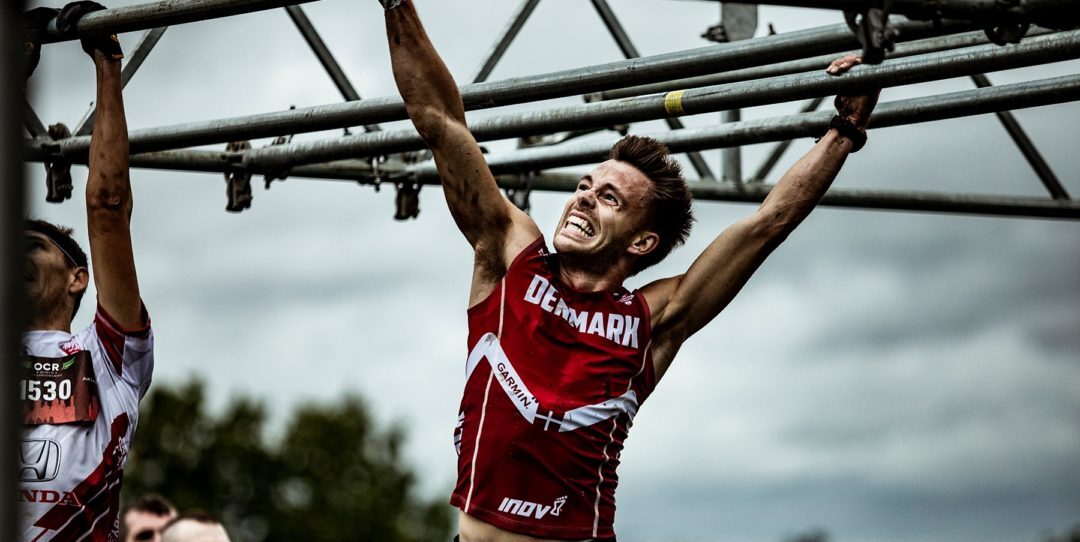
Leon Kofoed
-How you would describe OCR in three words?
Is Obstacle Course Racing too easy of an answer? Here’s a better one: Lifestyle Changing Experience
-When and how did you start to compete in the OCR?
I did my first OCR event in 2012. I’ve always been competitive and and that race I tried to win “muddiest person” and also the pull-up challenge. I succeeded in none of them, but got 2nd at both! Next year I was hungover for all 4 events and so the story continues until 2015, when I returned from New Orleans and a fun exchange at Tulane University, studying Finance at their Business School. I had had enough of social drinking and letting my body “decay” from not taking properly care of it. I wanted to see what it could do, what I could do – before getting “too old” to use that as an excuse. So I strapped in, and got a bit more serious. It took a few years as I was also studying, working, teaching and so on, but around late 2017 I had educated myself enough in sports science to understand what was going on. From there I’ve managed to improve my fitness to the point that I’m considered a competitor at any OCR event around the globe. The next step for me is going professional with OCR and I hope to obtain that in the next 18 months.
-Were you doing other Elite sports before the OCR races?
I’ve always been decent at sports. I played a bunch of soccer and did OK, went to a few national championships in rifle shooting and I scored best in all physical tests during my military draft of the 90 people who I served with. I’ve always prioritized studying, socializing and even dating higher than sports – and I don’t regret that at all. Now I’m exploring a new side of myself and I’m having a blast doing it!
-Which training have you been doing during lockdown?
I started lockdown with 3 weeks of no running as a result of an overuse injury… Since I’ve been trying to get back to my regular training regimen, building up nice and slowly with the running. I’ve been crosstraining on my bike and I’ve done a few new routines for strength conditioning and also for having the best grip on the planet. Could’ve been better, could definitely also have been worse. I’ve stayed positive 🙂
-How can you keep motivated yourself in the training without knowing when you will be able to race?
Well, the injury kind of made me happy I shouldn’t race. So I’ve just been riding that wave, knowing my fitness will only get better over time. I’m also hugely motivated knowing that some of my competitors can’t handle training without a race around the corner. So I feel like I’m putting money in bonds instead of stocks now, thinking long term and I’m enjoying the process.
-What are you strength and weakness in a race? Do you prefer a good trail run or more a technical race?
I guess some people wouldn’t want to share this, but I’ve been an open book from the beginning and I’ll probably stay that way.
Strength: Shorts OCR events with little elevation and a good amount of technical obstacles.
Weakness: A looooooong mountainous course with a lot of long heavy carries. I do NOT enjoy that! Which is fun, as my favourite place in the world to run is in the mountains. I especially love Chamonix in France and I’d like to go there every year! I just don’t want to race there.
-In which country would you like to compete? Why?
All of them. I want to meet the different OCR communities around the world and try their unique races. I want to go to Argentina, to the SEA Games, to the Middle East and especially to South Africa. I hope to share some love on the go and give the guys a good run for their money on home turf!
-How do you see the direction of the OCR as a sport? How different it is now compare when you started?
This is potentially a question that can lead to a huge answer. I’ll be very brief though, as it’s a technical subject with a ton of layers. In Denmark we’re working on re-structuring the national association to a union containing a bunch of associations. We are also talking to the Danish Athletics Union about incorporating OCR in “school olympics”, an annual elementary school event. These steps are important and take a long time. Furthermore, we’ve hosted the first European World OCR Coaching courses in Copenhagen, which establishes Denmark as a strong player in the development of federated sport. But the projects are time consuming. We’re much better off than in 2017, but it’s a way to go I think. Luckily the Danish media takes on OCR quite well. On a world level, I’m not 100% up to date. I hope that the IOC receives good proposals for the 2024 Olympics, and I pray this could be an opportunity for us!
LATEST POSTS


